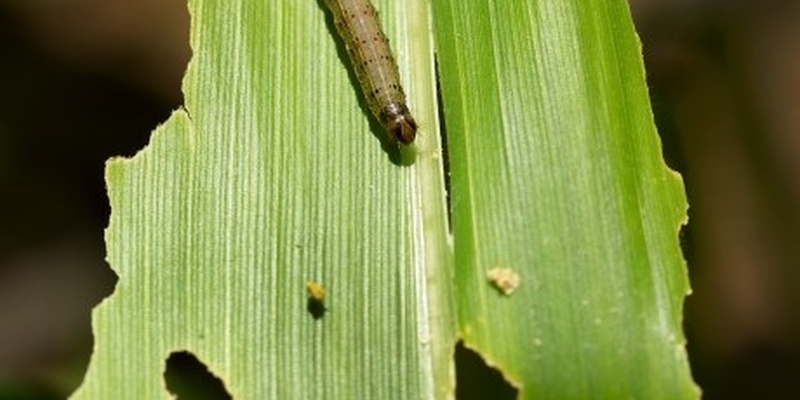Limit the spread of fall armyworm, IPPC webinar series explains how
Posted on Mon, 29 Nov 2021, 09:04

©FAO/Lekha Edirisinghe
Rome, 23 November 2021. Fall armyworm is one of the major threats to global food security, plant health, and livelihoods. This transboundary pest is affecting more than 70 countries all over the world and has become a major concern for those in which it has not been introduced. Climate and agriculture conditions in regions like Southern Europe, Near East and North Africa, and the Pacific would make it easier for fall armyworm to establish in these territories, with almost no feasibility of eradicating it.
The FAO Global Action for Fall Armyworm Control supports activities to help countries prevent the spread of this pest and be ready to respond to its possible incursions. To make this possible, FAO and the IPPC have developed new global guidelines on prevention, preparedness and response countries can use to protect their territories from the introduction of fall armyworm. International travel and trade of commodities and agricultural products, such as asparagus and cut flowers, can spread fall armyworm worldwide, and phytosanitary measures are needed to prevent it.
Under the auspice of the Technical Working Group on Quarantine and Phytosanitary Measures, the IPPC Secretariat has organized the webinar series "Fall armyworm, a global threat to prevent" to raise awareness on the importance of preventing this global threat and encouraging countries to set up both prevention and response plans against fall armyworm. Articulated into three key sessions on 22 October, 19 November, and 10 December, this series of webinars aims at promoting the approach highlighted in the FAO guidelines in those countries where fall armyworm is not yet established and at limiting the spread of the pest to new areas.
“These webinars intend to establish a global network to enhance dialogue and share expertise to prevent and limit the spread of fall armyworm all over the world”, said Sarah Brunel, Implementation and Facilitation Unit Deputy Lead at the IPPC Secretariat and moderator of these webinars. During the second event, the experts of the technical working group provided countries with concrete guidance on how to deal with the early warning and detection of fall armyworm through the implementation of pest risk analysis, inspection, surveillance, diagnostic and other phytosanitary measures. For instance, if fall armyworm is detected in a consignment, it should be immediately detained under official control and specimens sent to the designated laboratory for identification. The implementation of International Standards for Phytosanitary Measures is crucial to prevent fall armyworm from spreading globally.
The third and conclusive webinar of the series will focus on response and communication plans for fall armyworm. During the event, international experts and technical working group members will explain what countries need to do once fall armyworm is detected in their territories and why engaging different stakeholders is crucial to address this global issue. The event will take place on Friday, 10 December 2021, and is still open for registration. Interested individuals can register at this link!
Learn more
Prevention, preparedness and response guidelines for Spodoptera frugiperda
Toolkit: Fall armyworm prevention
Video: Stop fall armyworm now before it is too late
Story: Be ready if fall armyworm comes knocking at your door

